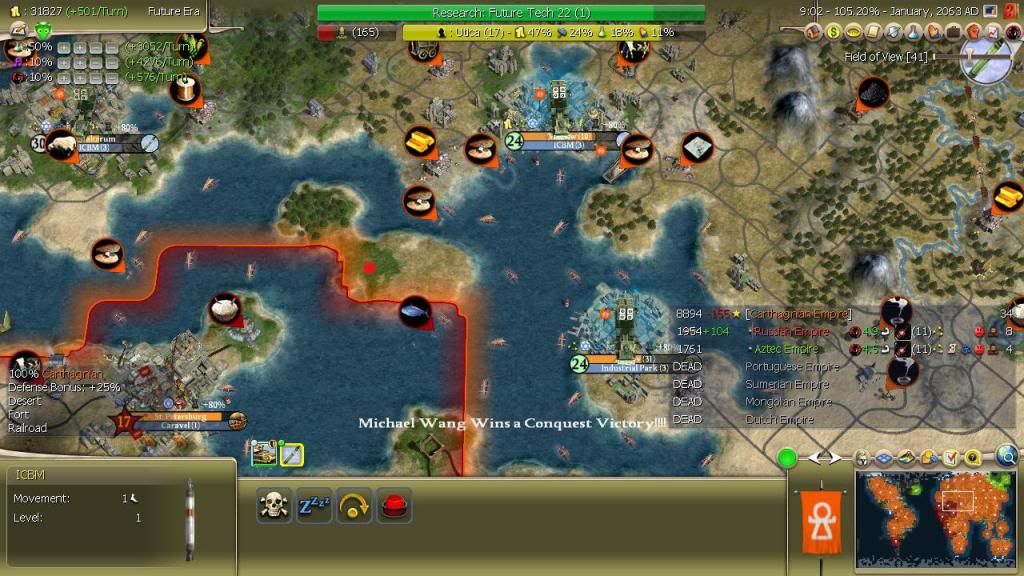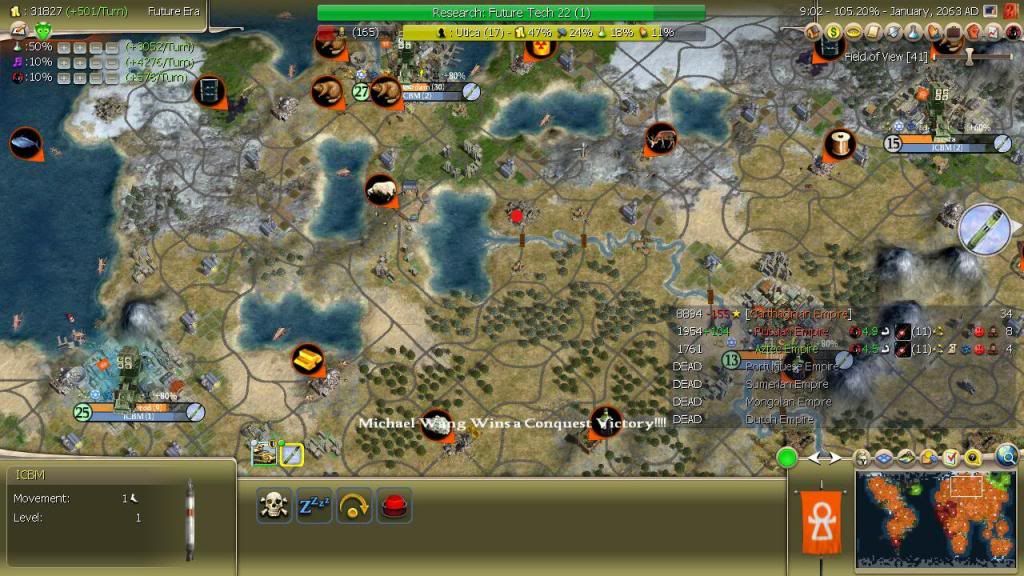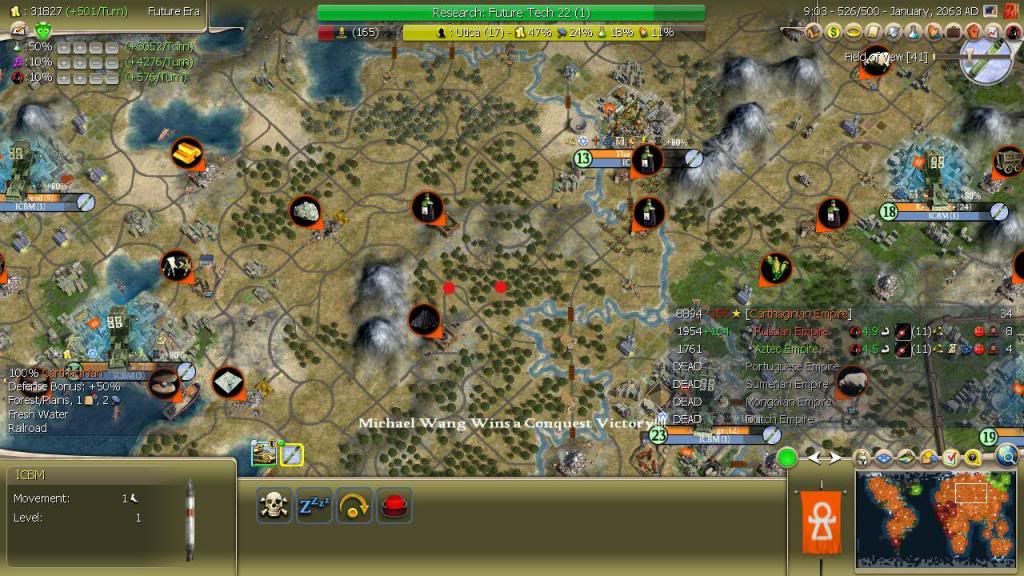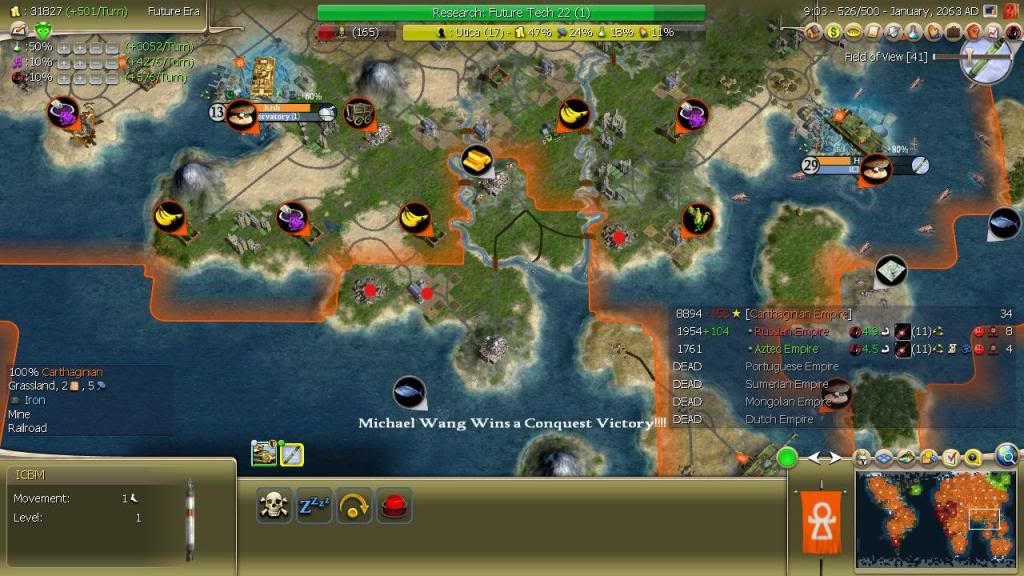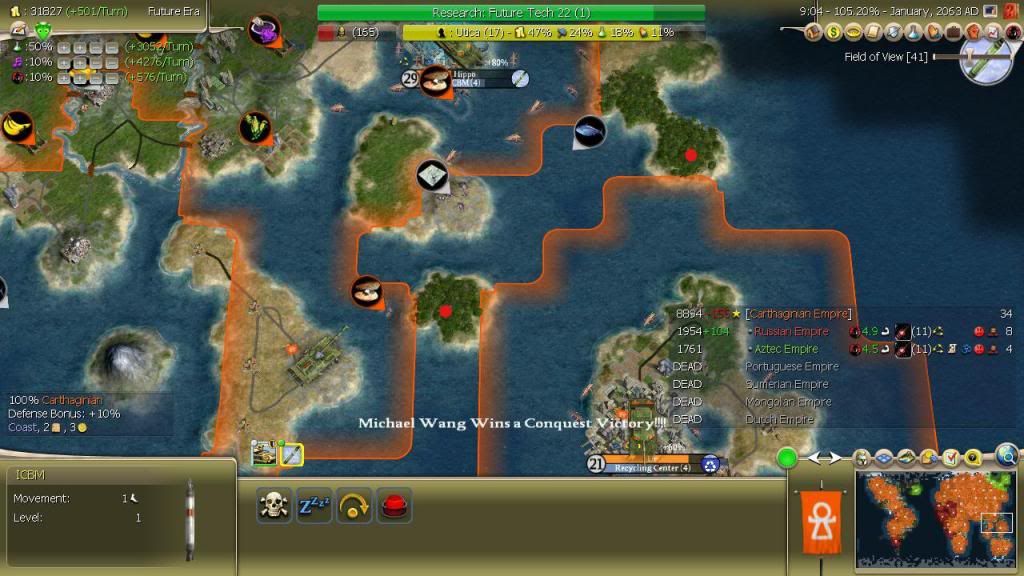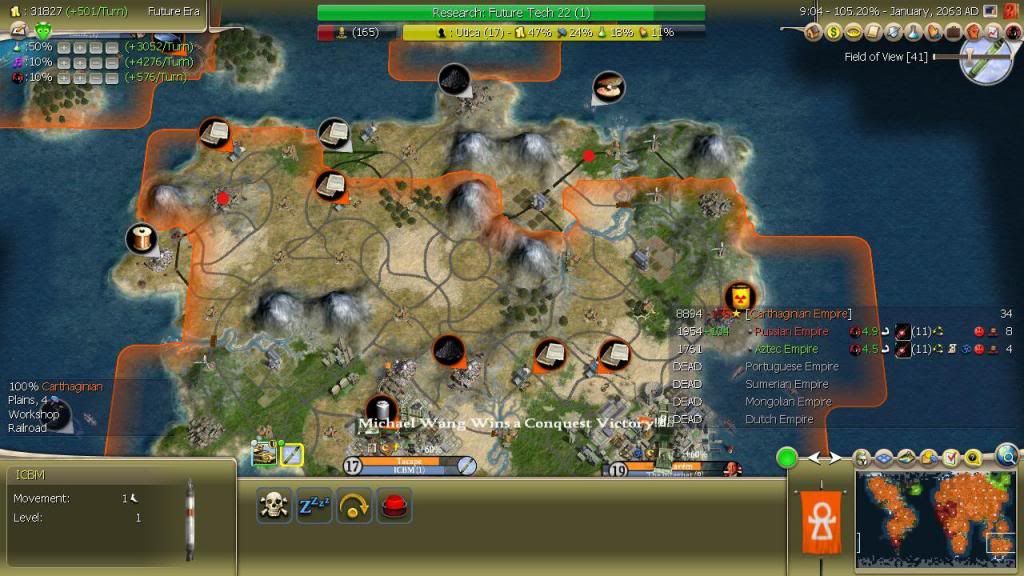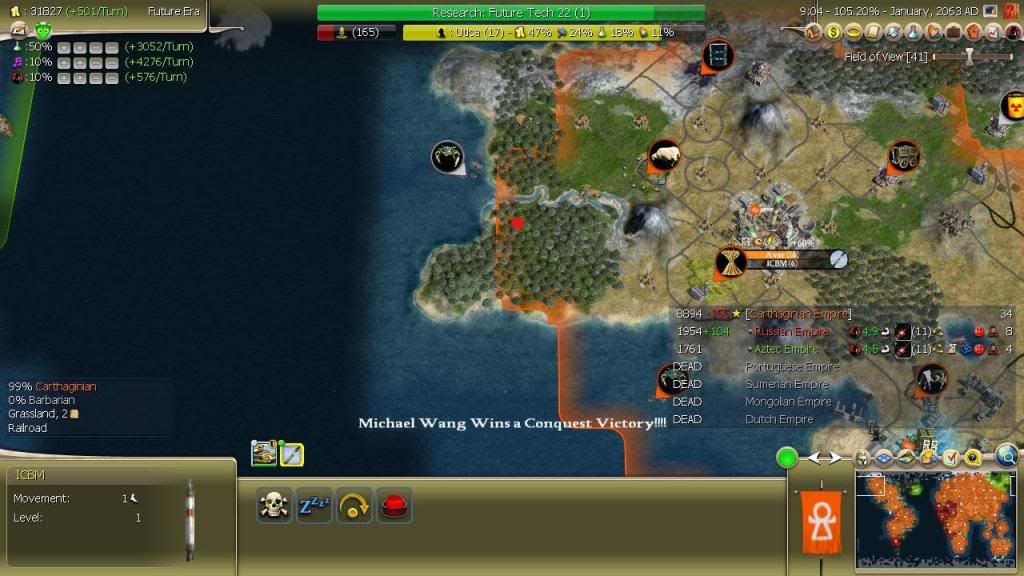Basically this is my problem:
Start game with intent to win through time victory
Expand quickly, become points leader
Run out of places to expand and start falling behind
Forced to declare war, or else I fall behind another AI (who is somehow able to get a huge ing empire without fighting wars)
Time is the unloved runt child of the victory conditions; I'm not sure that collectively we know a lot about it. A good player needs to (a) not win earlier by accident, and (b) play whack-a-mole with the AI as each in turn approaches a victory.
However, there is clearly a problem in your game somewhere; the human player has an enormous advantage (the ability to think) over the AI. Thus, once the mechanics are understood, wars tend to be quite profitable.
1150 AD is a bit late for a first checkpoint, but we shall see what we find. I'll write up my initial thoughts in order of observation, rather than in order of priority....
1) You are on turn 175, and you haven't yet explored any of the continent that lies outside your boarders. This blindness means that you really don't know enough about the map to be able to react to your adversaries, or even make a plan for how to win.
It's an important to understand the lay of the land around you, so that (once you have claimed your fair share) you can correctly prioritize the AI's fair share of the goodies. This is usually done by signing open borders agreements with your neighbors very soon after writing, and training fast units (scouts, or chariots) to go look at their lands
2) You are at 1150 AD, and you haven't discovered Education yet. This suggests a very slow tech pace, which is confirmed by the fact that you are only producing 103 research a turn at break even.
A look at the demographics screen shows that your GNP is almost last (presumably, you are ahead of Shaka, and no one else). You aren't far behind the pace, but truthfully you shouldn't be behind the pace at all.
Demographics also shows that you are weak in production, and in food, and in soldiers. You are second in land, which suggests that you are badly developed.
3) A look at the statistics shows that you have trained 5 workers in 175 turns. That almost certainly means that the development of your land has been slow.
4) You've only got three great people to your credit -- an Artist (from Music?) and two Prophets (from the Oracle in the capital). That indicates that you haven't yet learned the great person mechanics, and how that fits into your planning.
5) Only five cities. You are clearly gimping yourself very badly in the opening. The 12 forests surrounding the capital suggest that you haven't yet learned that chopping down trees gives you hammers. Bronze working and chopping are an important element in ensuring that you get to claim more land than the AI does.
You've got three fish and a green cow that should each be feeding a city. You simply forgot to settle them. Likewise, there's a corn and a fish tile north of Carthage that ought to have been yours (but now they are claimed by cultural pressure from Greece.
You got your first settler only a little bit slow, but Utica looks like a pretty unhappy second city - it needs a lot of help to start contributing to your progress. Hard to be sure at this point, but you likely would have been better off going coastal.
Your remaining cities were definitely slow -- only three cities at turn 75? ouch. Not sure what you were doing then, but it wasn't playing to win.
6) Weak cities. Hadrumetum is just a mess -- it sort of looks like you wanted it to be a GP farm, but the land isn't really suitable. As it stands, it's a city with too much food. You would be much better off if those farms were maturing cottages.
Carthage is working 5 unimproved tiles! ouch ouch ouch. Three of those people working brown forests should instead be working green mines, and the others should probably be working cottages where those riverside forests stand.
7) While you are at war, your best city is busy sinking hammers into a world wonder, and another city is sinking hammers into a courthouse. Not a good choice when what you need are units units units.
War is supposed to be easy, but it's not going to be here because you have snowballed yourself so far behind -- failure to settle enough cities early has meant that you haven't had enough hammers since to build a good army.
Translated: all that time in the early game when you thought you were ahead, you were actually behind in the things that matter, and then you got caught flat footed as the AI caught up to you.
At Noble, until you can beat it regularly, I recommend aiming for the Rule of One: you should be first in GNP, first in Soldiers, first in Land, by 1AD. Once you are there, you can generally win any way you like.

 Don't feel bad about it: asking the right question is an admirable deed, indeed, when we deal with a game such as Civ4.
Don't feel bad about it: asking the right question is an admirable deed, indeed, when we deal with a game such as Civ4.
